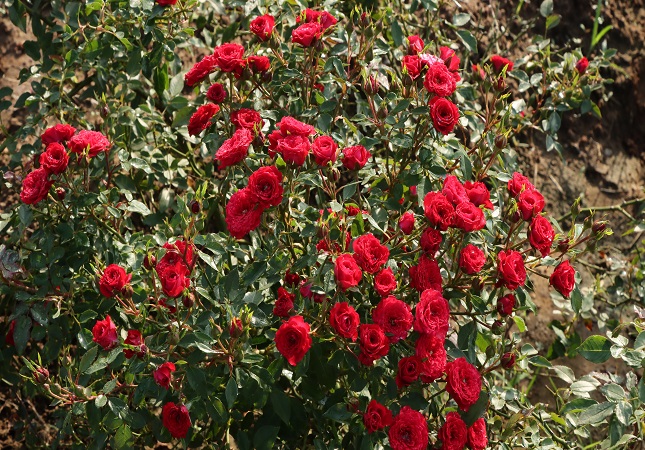What are the major areas and prospects of floriculture in Tamil Nadu, and how does the state contribute to the floriculture industry?
Floriculture in Tamil Nadu holds significant potential, and the state contributes significantly to the floriculture industry. Here's an overview of the major areas and prospects of floriculture in Tamil Nadu:
-
Hosur and Krishnagiri Districts: The Hosur-Krishnagiri region in Tamil Nadu is renowned for its floriculture activities. The favorable climate and proximity to Bangalore's flower markets have led to the establishment of numerous flower farms. Roses, gerberas, and other cut flowers are extensively cultivated here.
-
Coimbatore District: Coimbatore, known as the "Manchester of South India," has emerged as a hub for floriculture. The district's moderate climate and fertile soil make it suitable for growing a wide range of flowers. Carnations, gerberas, and roses are some of the popular varieties cultivated in this region.
-
Dindigul District: Dindigul district in Tamil Nadu is known for its production of jasmine flowers, particularly the "Mullai" variety. Jasmine cultivation is a traditional practice in this region, and the flowers are in high demand for religious, ceremonial, and decorative purposes.
-
Nilgiris District: The cool climate and high altitude of the Nilgiris District favor the cultivation of temperate flowers like roses, carnations, and orchids. The region's picturesque landscape, coupled with its potential for flower cultivation, attracts tourists and contributes to the floriculture industry.
-
Chennai and Surrounding Areas: Chennai, the capital city of Tamil Nadu, and its surrounding areas have a significant market for flowers. Floriculture activities in this region focus on meeting the local demand for various occasions, events, and religious ceremonies.
The prospects for floriculture in Tamil Nadu are promising due to several factors. The state's diverse agro-climatic conditions, availability of skilled labor, and strong agricultural infrastructure create a conducive environment for flower cultivation. Additionally, Tamil Nadu's proximity to major markets, both domestic and international, enhances the market prospects for flower growers.
The state government of Tamil Nadu has also taken initiatives to support and promote floriculture through schemes, subsidies, and infrastructure development. These efforts aim to boost the floriculture sector, create employment opportunities, and enhance the income of farmers engaged in flower cultivation.
Overall, floriculture in Tamil Nadu has gained momentum, with various regions specializing in different types of flowers. The state's contributions to the floriculture industry include the production of diverse flower varieties, meeting local and regional demands, and supplying flowers to national and international markets.

